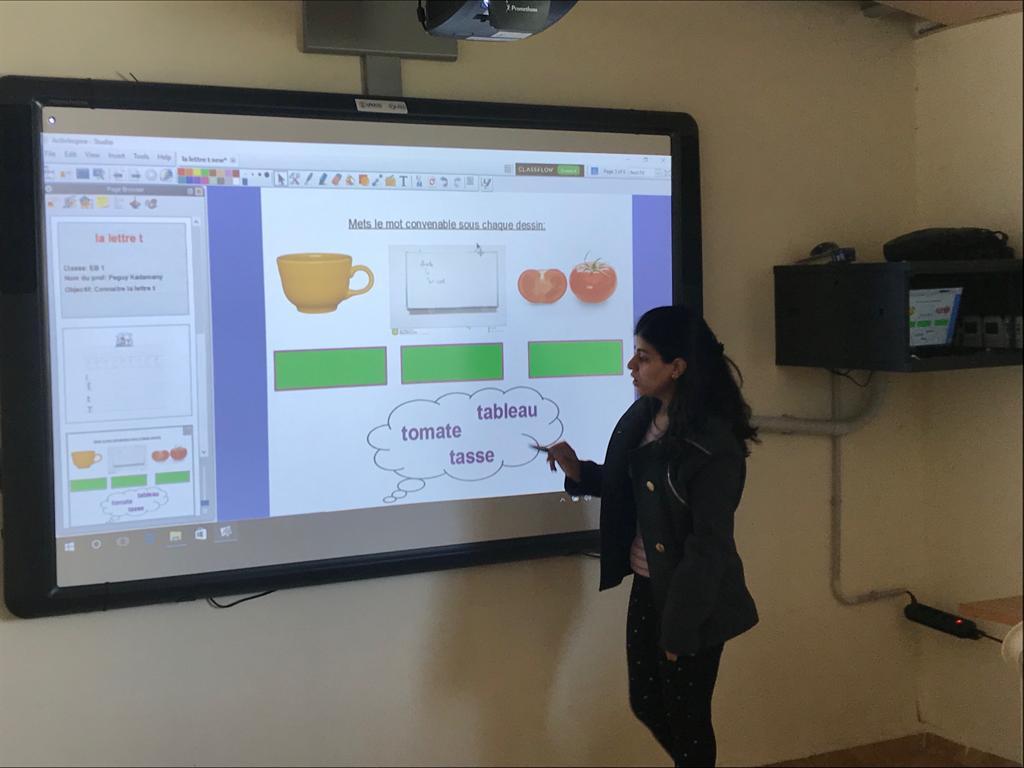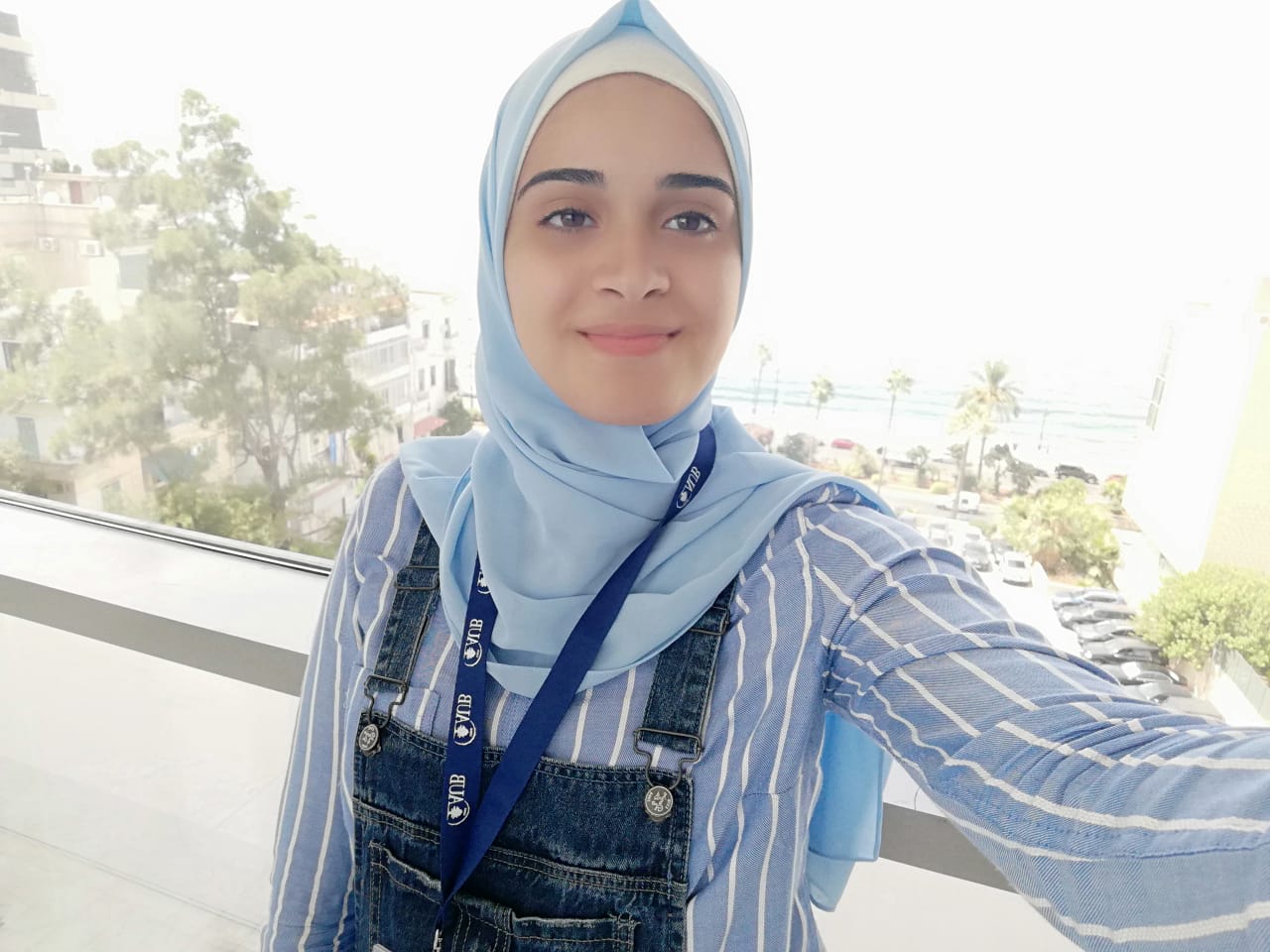DOT Lebanon: Empowering Communities Online

In the middle of the Levant falls a small country with plenty of challenges. Lebanon, one of the smallest countries in the Middle East and the world, is the host of the largest number of refugees per capita. The government estimates Lebanon is home to 1.5 million Syrian refugees and around 14,815 refugees of other nationalities.
Since the end of 2019, Lebanon has been facing a severe economic crisis which has led to political unrest. Inflation rates of the Lebanese pound have reached an extreme high, the cost of food continues to increase, and lifesaving medications are in limited supply. The August 2020 Beirut port explosion killed and injured a cumulative 6720 people, and a limited fuel supply is leading to power outages, internet cuts, and burdening the transportation systems. Unemployment in January 2022 sits at 29.6% – and UNESCWA estimates that more than 55% of the country’s population is trapped in poverty.
The many challenges faced by Lebanon, the Syrian refugee influx, street protests, the COVID-19 pandemic, dangerous depletion of resources and the Beirut port explosion are intersecting and disproportionately affecting vulnerable groups and communities such as female-headed households, children, youth, refugees and migrant workers.
As technological breakthroughs rapidly shift the frontier between the work tasks performed by humans and those performed by machines and algorithms, global labour markets are undergoing major transformations. These transformations, if managed wisely, could lead to a new age of good work, good jobs and improved quality of life for all, but if managed poorly, pose the risk of widening skills gaps, greater inequality and broader polarization – already exacerbated by the amassing challenges.
Now and more than ever, basic digital skills are a necessity – to enter the job market, for inclusive livelihoods, and for basic survival. Digital Opportunity Trust (DOT), an International NGO, has turned the intersection of the potential of youth and the power of technology into a formidable force for creating an inclusive digital economy.
Through locally staff offices across Africa and the Middle East, DOT responds to the inevitable and fast approaching digital era with a vision in which all underserved and disadvantaged young women and men realize their potential in an inclusive digital economy.
Digital Opportunity Trust Lebanon (DOT Lebanon), an affiliate of DOT and a NGO established in Lebanon in 2010, answers the dire need to develop skills -digital and 21st-century- of the future to youth, recent graduates and those looking for employment in Lebanon from all nationalities. DOT Lebanon provides skills development programs to build and enhance 21st-century skills within marginalized, refugee and host communities in Lebanon to prepare them for the jobs of the future. Equipping them with transferable skills and knowledge enables them to become economically active and decrease their dependency on foreign assistance.
DOT Lebanon has built a successful presence serving over 22,000 youth aged 18 to 35; in underserved communities in the country including refugees, persons with disabilities, unemployed or underemployed young people, teachers and women across the country needing humanitarian and development interventions.

This impact is seen through 71 projects with over 200 national and international NGOs, Schools and Municipalities in over 150 Lebanese and refugee communities nationwide providing education technological and digital strengthening for teachers across learning systems and digital and entrepreneurship capacity building through equipping teachers and youth with digital and entrepreneurial skills to improve their livelihoods.

DOT Lebanon’s ICT in Education program educates school teachers on using new pedagogical approaches in their classroom which expose students to technology at a very young age – creating opportunities for digital literacy in early education. The program has reached 2,048 beneficiaries.
Education can be transformed by Teachers with the skills, tools and mindsets to enable students of the future generations to gain, harness, and act on 21st-century skills
Teachers in Taalabaya’s Public School were ready to overcome the digital barriers and committed to upgrading their lessons, they were able to adopt new technologies to provide interactive learning classes quickly. Science, Mathematics, and Linguistics teachers became ready to use and manage digital toolsets and resources to help their students grasp lessons more interactively.
Our students will require more interactive methods to recall old lessons and get back on track quickly.”
Itidal Falha, Grade 9 Math teacher
The Technology and Entrepreneurship Program offers young people a wide range of curricula tailored to advance beneficiaries from basic to intermediate to a point where they can learn entrepreneurship and advanced digital skills – so far the program has upskilled over 20,000 beneficiaries.
While transforming education serves to digitally skill and enable future generations; DOT Lebanon also is empowering the current generations of graduates looking for work – looking to create impact;
Hiba’s story builds empathy, digitalization and personal passion to her project, “No Deafference.”

Communication is a simple act of exchanging messages between people. Yet, some other people struggle with understanding and conveying messages due to their hearing impairments. That’s why Hiba decided to help those people through a mobile application.
Over 466 million people across the world suffer from hearing difficulties according to the World Health Organisation (WHO). Public and private initiatives are launched globally to facilitate the inclusion of those people. In Lebanon, daring social innovators are also taking action to help hearing-impaired individuals to overcome their disabilities and become active members of society.
Hiba a Palestinian CCE student who discovered at the age of 5 that she has hearing difficulties – she wanted to enhance her digital skills to share her passion with people having the same case. Hiba joined DOT’s Digital and Media Literacy training in Beirut, and Mount Lebanon and Hiba suggested: “No Deafference”: an innovative idea aiming to help people with hearing impairments communicate easily with their environment. “No Deafference” is a mobile application that uses the mobile camera to shoot the deaf person communicating and translate their sign language into spoken language, and vice versa. The application also helps deaf people participate in training courses and understand music and songs.
You can read more about Hiba’s story here
About Digital Opportunity Trust
DOT mobilizes and inspires underserved and disadvantaged young people with digital literacy, 21st-century skills and the self-confidence that will enable them to thrive in an inclusive digital economy. The ICT in Education and Technology and Entrepreneurship programs contribute to DOT’s commitment to the EDISON Alliance’s 1 Billion Lives Challenge to deliver digital literacy and 21st-century skills in the marginalized communities and schools of Africa and the Middle East, to reach an additional 1 million people by 2025.
Are you our next Community Leader, Digital Champion, or Social Innovator? Learn more about how to join #DOTYouth
Join #DOTYouthShare this Post
More ARTICLES
Read more like this.